UN marks first anti-Islamophobia Day to ‘stamp out anti-Muslim hatred’
UN Secretary-General Antonio Guterres on Wednesday affirmed that the International Day to Combat Islamophobia, observed for the first time this year, is “a call for action to stamp out anti-Muslim hatred”.
“Discrimination diminishes us all. We must stand up against it,” he said in a Twitter post. “Today & every day, we must counter the forces of division by reaffirming our common humanity.”
The first International Day to Combat Islamophobia is a call for action to stamp out the poison of anti-Muslim hatred.
— António Guterres (@antonioguterres) March 15, 2023
Discrimination diminishes us all. We must stand up against it.
Today & every day, we must counter the forces of division by reaffirming our common humanity.
The world body on Wednesday -- March 15 -- observed the International Day to Combat Islamophobia for the first time with the goal of taking “concrete action in the face of rising hatred, discrimination, and violence against Muslims”.
Last year, the United Nations General Assembly (UNGA) adopted a unanimous resolution submitted by Pakistan on behalf of the Organisation of Islamic Cooperation (OIC) deeming this day as the International Day to Combat Islamophobia.
Meanwhile, a UN report has revealed that "suspicion, discrimination and outright hatred" towards Muslims in countries where they represent a minority has reached "epidemic proportions."
The special rapporteur report on freedom of religion or belief said Muslims face discrimination in accessing goods and services, finding work, and education.
In some countries, they are denied citizenship or legal immigration status due to hostile perceptions of foreigners that Muslims represent a threat to national security, it said.
On March 15, 2022, the UN General Assembly adopted Resolution 76/254, designating March 15 as the International Day to Combat Islamophobia. The resolution was introduced by Pakistan on behalf of the Organization of Islamic Cooperation (OIC). It marks the day when a gunman entered two mosques in Christchurch, New Zealand, killing 51 people and injuring 40, on March 15, 2019.
The resolution invites all member states, relevant organizations of the United Nations, other international and regional organizations, and civil society, private sector and faith-based organizations to observe the international day appropriately.
It recognizes “with deep concern an overall rise in instances of discrimination, intolerance and violence, regardless of the actors, directed against members of many religious and other communities.”
The resolution says terrorism “cannot and should not be associated with any religion, nationality, civilization or ethnic group," and calls for "strengthened international efforts to foster a global dialogue on the promotion of a culture of tolerance and peace at all levels.”
UN Secretary-General Antonio Guterres has affirmed that the move is “a call for action to stamp out anti-Muslim hatred."
“Discrimination diminishes us all. We must stand up against it,” he said on Twitter. “Today & every day, we must counter the forces of division by reaffirming our common humanity.”
The first International Day to Combat Islamophobia is a call for action to stamp out the poison of anti-Muslim hatred.
— António Guterres (@antonioguterres) March 15, 2023
Discrimination diminishes us all. We must stand up against it.
Today & every day, we must counter the forces of division by reaffirming our common humanity.
Guterres said anti-Muslim bigotry is part of a larger trend of a resurgence in ethnonationalism, neo-Nazism, stigma, and hate speech targeting vulnerable populations. His remark underscored a crucial feature of anti-Muslim racism that makes Islamophobia more dangerous than other forms of discrimination.
The post-9/11 years are distinct in the way in which democracies and autocracies have fomented, weaponized and exploited fear of Muslims to further their ideological agenda.
Whether it is to advance the kind of narrow ethnonationalism mentioned by Guterres or to justify security measures that chip away at human freedoms, fear and misconceptions about Islam and Muslims are used to carry out and defend previously unthinkable state-sponsored human rights abuse.
UN General Assembly President Csaba Korosi has said “Islamophobia is rooted in xenophobia, or the fear of strangers, which is reflected in discriminatory practices, travel bans, hate speech, bullying and targeting of other people.”
“All of us carry a responsibility to challenge Islamophobia or any similar phenomenon, to call out injustice and condemn discrimination based on religion or belief – or the lack of them,” said Korosi.
Iran's Ambassador and Permanent Representative to the United Nations Amir Saeid Iravani recently condemned any act of violence against persons based on religion or belief, stating that the time has come for the international community to combat Islamophobia and act against hatred towards Muslims, who constitute a large portion of the world population.
“Currently, the world continues to witness the relentless aggression of the occupying Zionist regime against al-Quds and Muslims across the occupied Palestinian territories. Moreover, the Holy Qur'an is desecrated in some European countries under the pretext of freedom of expression,” he said.
“Over the past few decades, we have seen a wide network of media outlets, which under the guise of news dissemination, have established a hostile and offensive atmosphere against Muslims in violation of their human rights,” Iravani stated.
While Israel is at the extreme end of a global phenomenon notable for the backsliding of democracy and moving towards authoritarianism, countries like the United States, Britain, Austria, France, Germany are not far behind when it comes to the treatment of Muslims.
OIC calls emergency summit as Israel accelerates West Bank expansion
Israel, not America, first: Carlson’s Huckabee interview lays bare US foreign policy priorities
VIDEO | Call for unity, more support for Palestine, humanitarian action during Ramadan
Lebanese parliament speaker rejects any postponement of elections
VIDEO | Gazans break Ramadan fast amid rubble of their destroyed homes
Iran seeks to strengthen strategic ties with West African countries: Defense minister
US envoy’s remarks on Israeli West Asia expansion shows Muslim world targeted: Houthi
Iran says any agreement with US must fully safeguard national rights, interests


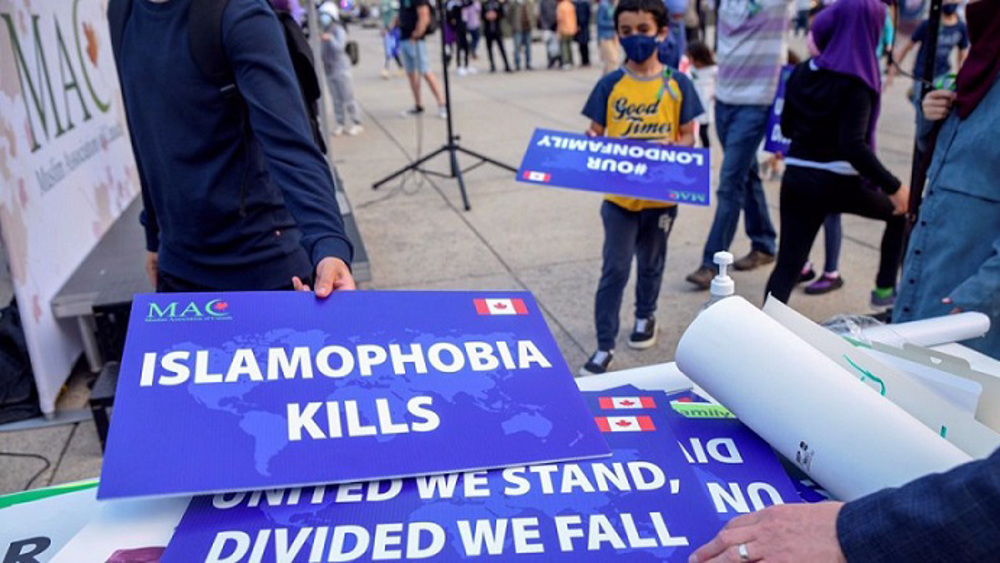


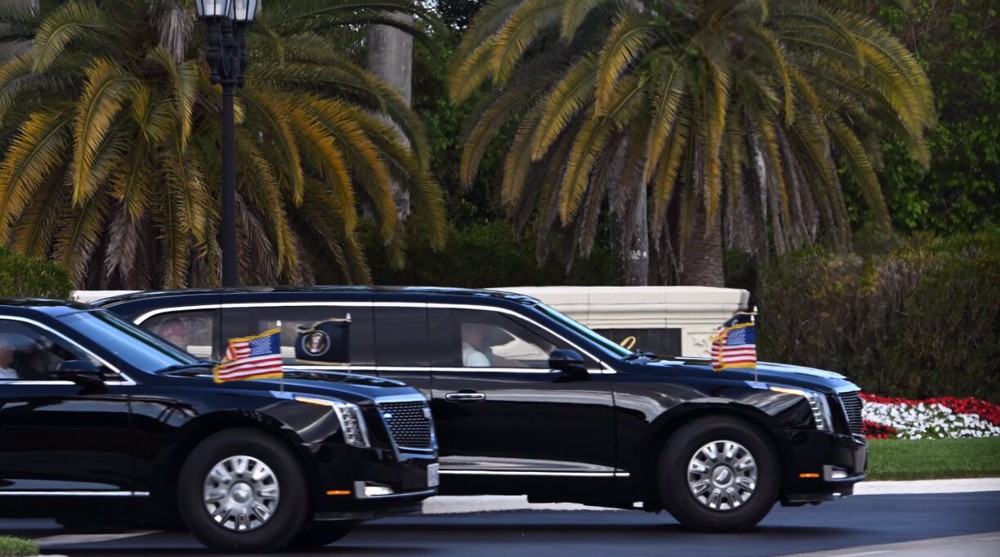




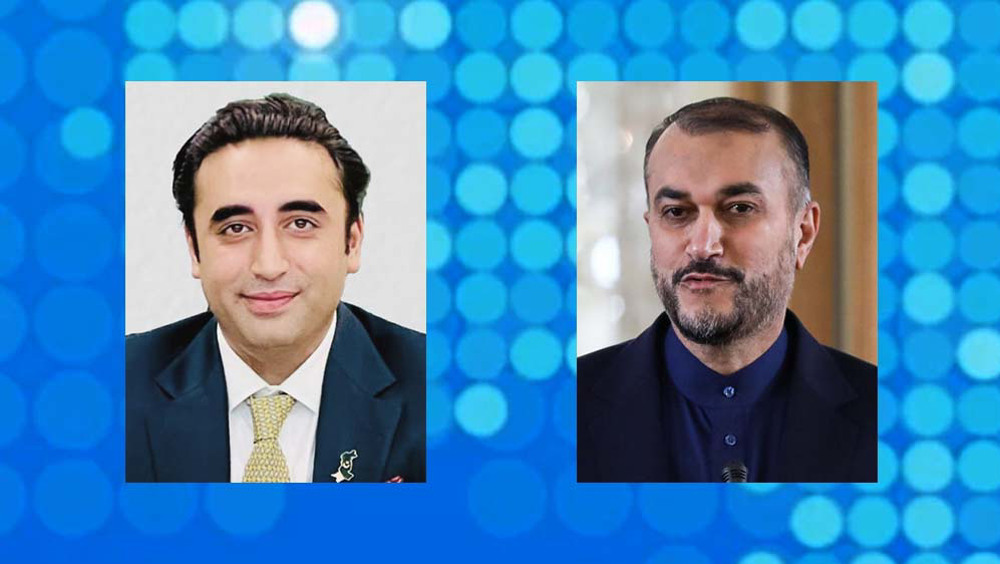
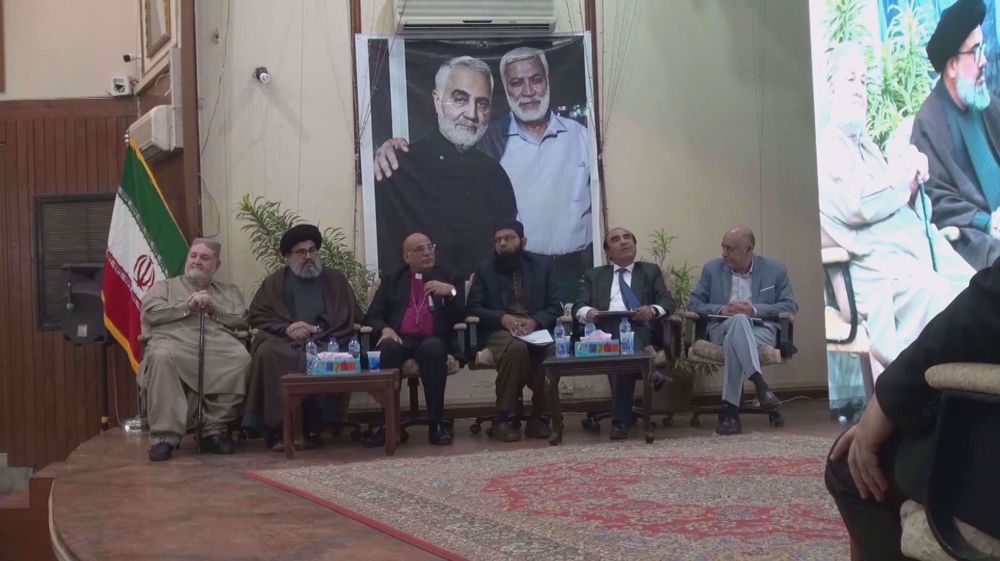

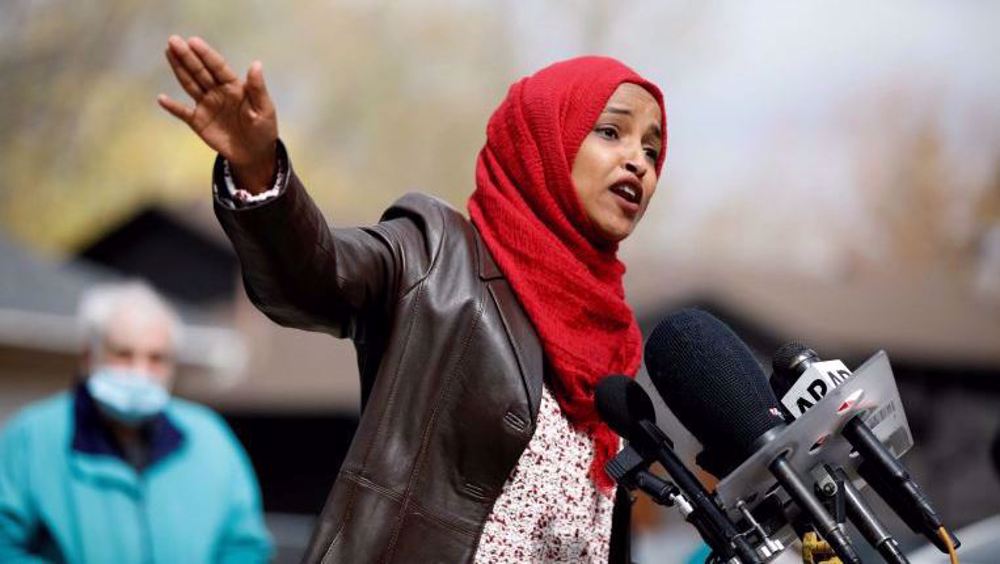
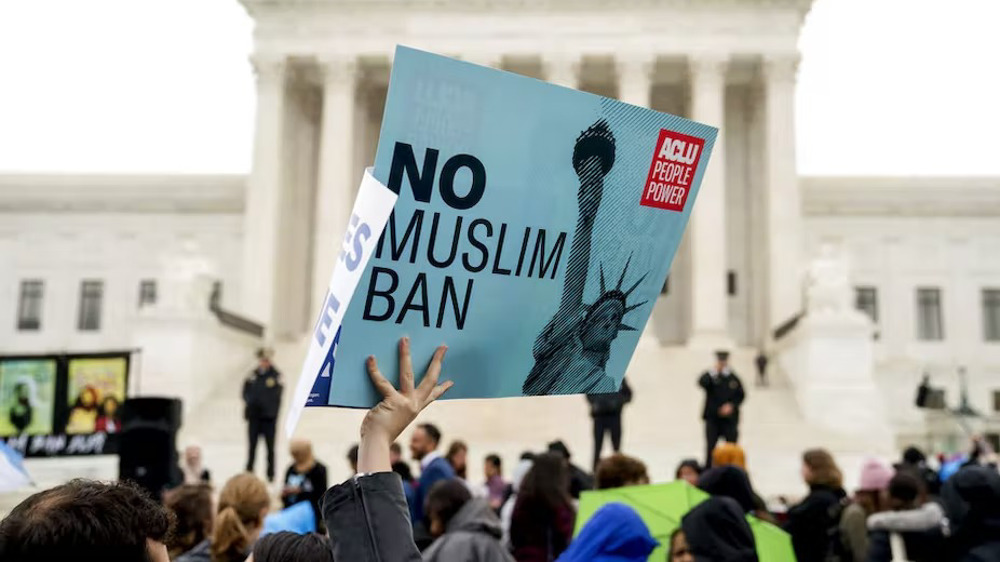
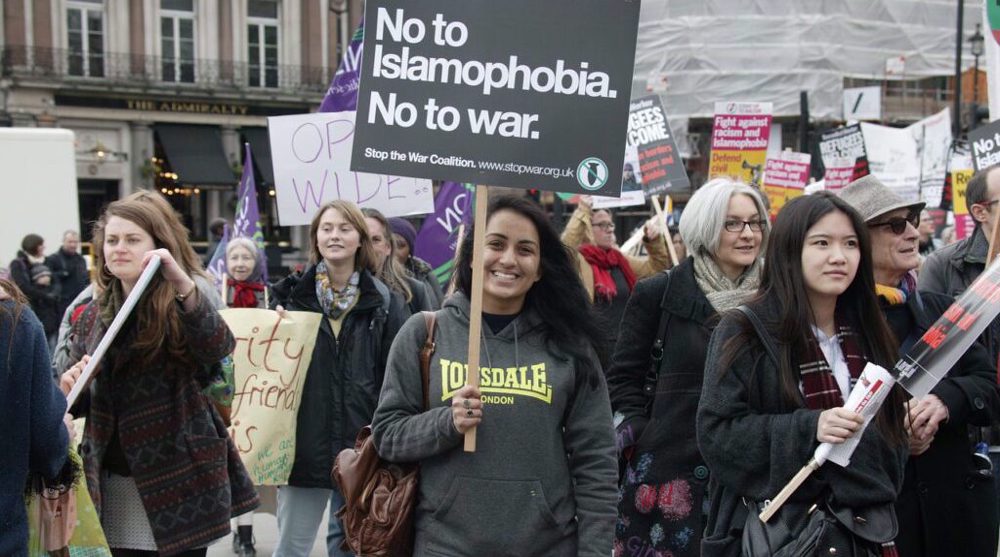
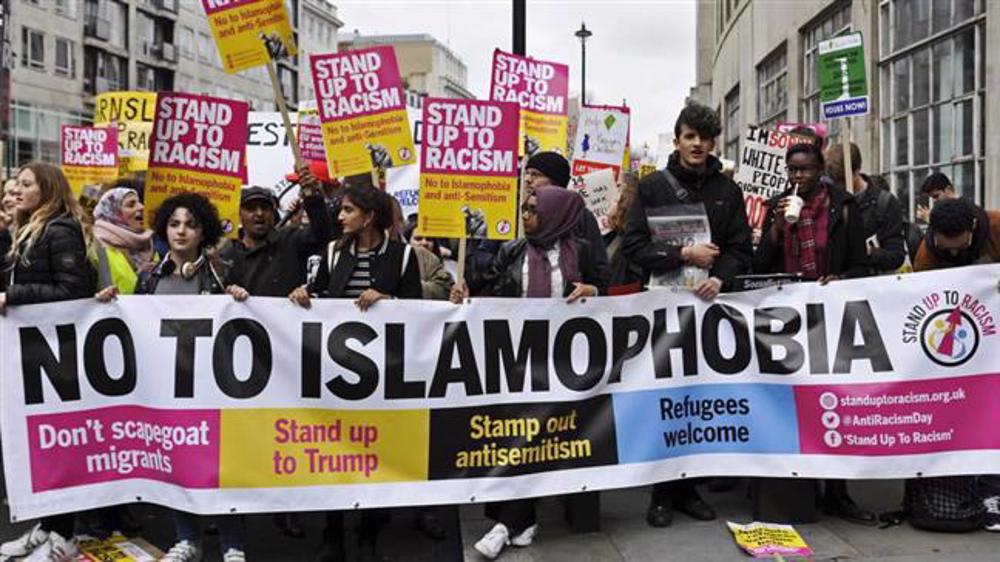

 This makes it easy to access the Press TV website
This makes it easy to access the Press TV website